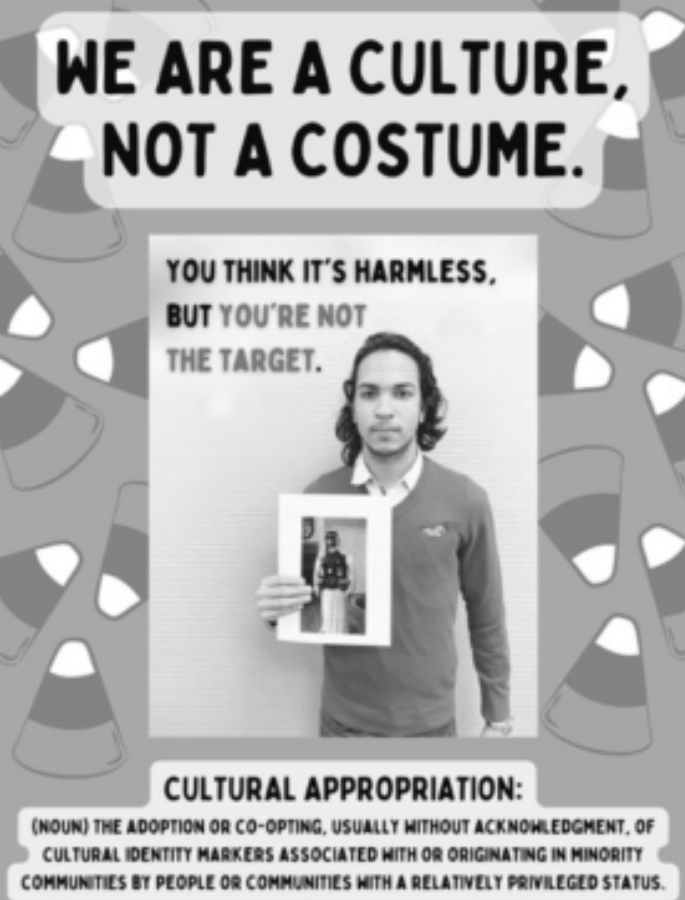Intercultural Center leads “Culture, Not a Costume” campaign
Courtesy / Intercultural Center
Posters designed by Lexi Guillemete raise awareness of cultural stereotyping in Halloween costumes.
October 20, 2022
As October 31 approaches, the minds of many students turn to the obvious question, “What are you going to be for Halloween?” As part of a national campaign, Saint Anselm’s Center for Intercultural Learning and Inclusion and the Multicultural Students Coalition asks students to also consider, “does your costume actually perpetuate cruel stereotypes that are harmful to other people?”
The nationwide campaign, “We’re a Culture, Not a Costume,” in which Saint Anselm has participated for the past 10 years, aims to address “the problematic practice of cultural appropriation surrounding Halloween costumes, practices, and celebrations.” Lexi Guillemette ‘24 is a communications intern at the Multicultural Center. She designed posters that can be found around campus in locations including the library, the Jean Student Center, and Davison Hall. She stated how “widespread” the practice of appropriating other cultures as a Halloween costume is and said that the goal of the posters is to “raise awareness so that people understand why it’s culturally inappropriate and insensitive.”
Guillemette added especially given that Saint Anselm is a predominantly white institution, the Intercultural Center “in and of itself is to make a space for students from underrepresented communities on campus.” Part of the way they do this is by encouraging students to stop and consider whether their costumes are respectful to other cultures.
Regarding cultural appropriation, Tofunmi Aderogba ‘26 said, “I think it [the campaign] is just trying to highlight an issue in white communities where other cultures get bastardized because it’s not yours.” He described how “because it belongs to a minority group, you can view it as something seen simply in the media and mock it.”
He also described how the “scaling down of blackface in entertainment,” for example, leads to “20 year old white guys running around in Native American costumes” on college campuses today. It’s the gradual disconnection of certain cultural expressions from their cultures that leads to appropriation of costumes and traditions and eventually to the harmful stereotyping of minority groups.
Guillemette said that the main purpose of the campaign is “to make people rethink what they’re dressing up as and make a better choice with their costume” and expressed her hope that students will understand the deeper meaning behind the posters that they might not initially think twice about.
Aderogba said, “I think it really depends on your attitude towards it because some people see posters and think ‘oh, that’s stupid.’ It shouldn’t make you angry that people don’t want their cultures to be mocked, and if it does, that’s an opportunity to take a look at it.”
Guillemette stated that the long-term goal of the “We’re a Culture, Not a Costume” campaign is that one day “we won’t have to put up posters like that.” The Intercultural Center is using their influence on campus to move towards that long-term goal.



